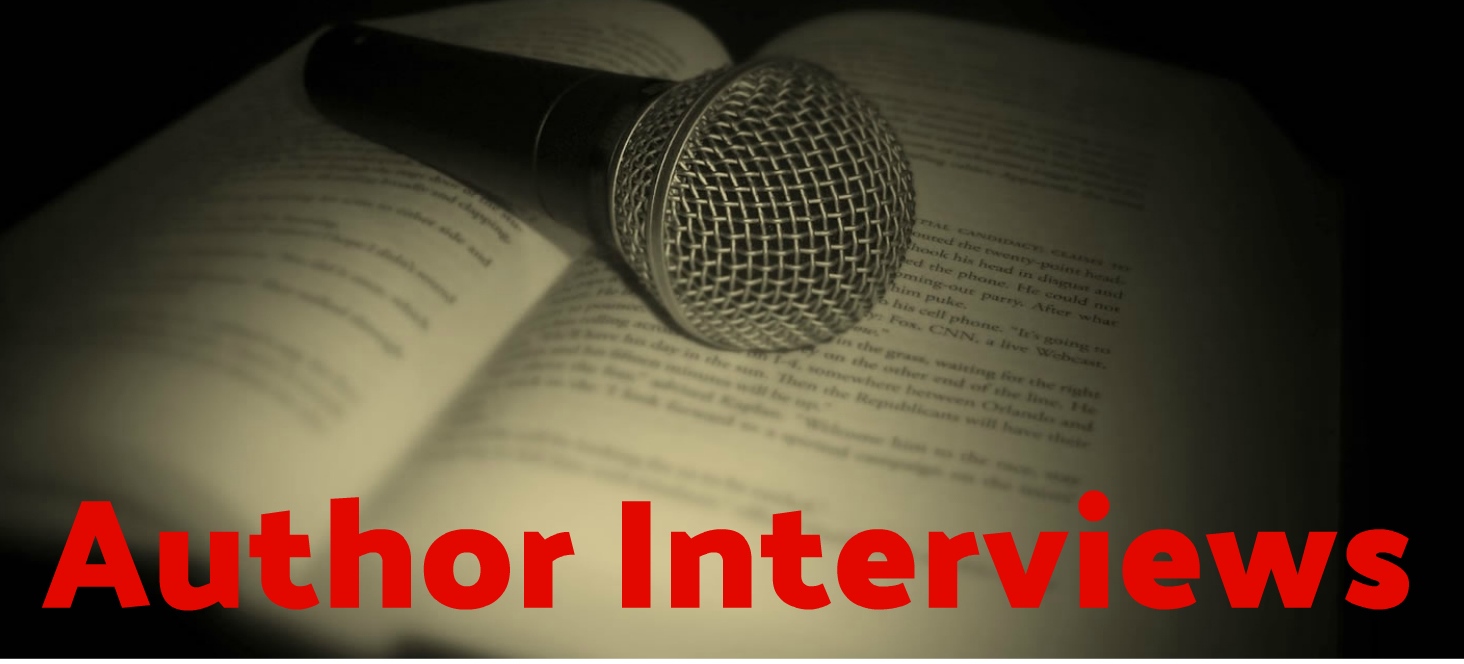
In-Depth Discussions with Today's Darkest Talents
Tobias Hill: Secrets & Revelations
By, Vince A. Liaguno
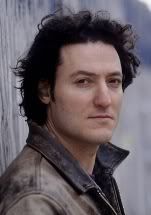 Tobias Hill has a secret. Lots of them, in fact. The award-winning poet-turned-novelist (with the occasional detour as journalist, essayist, and rock critic) has developed something of a niche for himself with the recurrent themes of secrecy, revelation, and obsession in his work. His latest novel, The Hidden (released last month by Harper Perennial), sets these same motifs against the backdrop of southern Greece where a team of close-knit archeologists dig for traces of a formidable ancient power. It’s sex, lies, and soil sifters for the literary-minded.
Tobias Hill has a secret. Lots of them, in fact. The award-winning poet-turned-novelist (with the occasional detour as journalist, essayist, and rock critic) has developed something of a niche for himself with the recurrent themes of secrecy, revelation, and obsession in his work. His latest novel, The Hidden (released last month by Harper Perennial), sets these same motifs against the backdrop of southern Greece where a team of close-knit archeologists dig for traces of a formidable ancient power. It’s sex, lies, and soil sifters for the literary-minded.
Dark Scribe Magazine connected with the 39-year-old London-born scribe for a transatlantic chat about his new book, the bearings of age on his work, and the toxicity of secrets.
Dark Scribe Magazine: Tell us about your new book, The Hidden.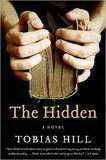
Tobias Hill: The Hidden is the story of an outsider, an innocent imagining himself loved and in love with people he doesn't fully understand. That’s a story that has always mattered to me. Most writers are outsiders themselves. You can see that reflected in a long line of novels — The Beach, The Lord of the Flies, Le Grand Meaulnes, Great Expectations.
The Hidden is also a book about terror. Extremism is what I set out to write about. I suppose one of the questions I want people to ask, as they read, is ‘What is hidden, here?’ And there are several answers, but one of them is, ‘Terror’.
Dark Scribe: What was your inspiration for the novel? Were there any cinematic or literary works that influenced you during the writing process?
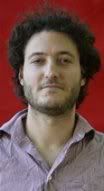 Tobias Hill: John Fowles’s The Magus and Donna Tartt’s The Secret History were magnets: they attracted and repulsed me. Or I repulsed them: I needed to keep both at arm’s length while I wrote Ben’s story. The concerns of the three novels are very different, but their landscapes and characters echo one another. They cover the same ground but go three different ways.
Tobias Hill: John Fowles’s The Magus and Donna Tartt’s The Secret History were magnets: they attracted and repulsed me. Or I repulsed them: I needed to keep both at arm’s length while I wrote Ben’s story. The concerns of the three novels are very different, but their landscapes and characters echo one another. They cover the same ground but go three different ways.
Dark Scribe: How extensive was your research for the book — ancient Spartan culture, archeological digs, the geography of Greece?
Tobias Hill: Extensive. There are writers who favor invention almost to the exclusion of research, but I’m not one of them. I do envy them. The opening scene of Jim Crace’s Being Dead is an example of how good that kind of writing can be: it precisely details the physical decomposition of the protagonists, and is absolutely convincing, yet Crace didn’t bone up on the scientific facts of decay to write the passage. Ian McEwan’s Enduring Love contains a similar example of the power of invention, a fictional psychological paper on erotomania which purports to be genuine - and might as well be, since reviewers and even psychiatrists believed it to be so. The best writing doesn’t need to be factual to be true.
Dark Scribe: Who was the hardest character to write?
Tobias Hill: The hero, Ben Mercer. He was difficult because he’s neither good nor heroic – he’s amoral, and a coward, for a long time – but I wanted the reader to be willing to travel along with him.
Dark Scribe: The uncovering of secrets and its aftermath seems to be recurrent them in your fiction. The Hidden begins with a quote from Sir John Dalberg-Acton: "Every thing secret degenerates". What is it about the concept of secrecy and revelation that makes for a compelling theme in your thrillers?
Tobias Hill: Is it a thriller, though? I don’t set out to thrill. The last thriller I enjoyed was Michael Jackson’s. Thriller is a shelf mark, like Romance or Self-Improvement; there are some books that sit 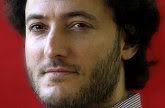 comfortably with all that, but not all. Shelf marks can be misleading. Does Jane Austen rest easy in Romance? Is Graham Greene loitering down in Crime? (Mind you, I was in Heathrow last weekend and saw The God Delusion in Fantasy and Science Fiction, so perhaps I should count myself lucky).
comfortably with all that, but not all. Shelf marks can be misleading. Does Jane Austen rest easy in Romance? Is Graham Greene loitering down in Crime? (Mind you, I was in Heathrow last weekend and saw The God Delusion in Fantasy and Science Fiction, so perhaps I should count myself lucky).
Secrecy and revelation: I’m interested in the why of the secrecy, and the how of the revelation. Why people keep things from those around them, and what happens when their concealments or deceptions are discovered. At the heart of The Hidden is a group of friends who share a secret. In a way the story is that of the secret; the slow spread of its toxicity.
Dark Scribe: The Hidden interweaves the lead character’s thesis notes chronicling ancient Spartan history with the main storyline. How difficult was it to interweave these historical elements within the action proper – and did you have any concerns about this type of narrative slowing down the book’s pacing? If so, how did you avoid that?
Tobias Hill: The Hidden starts at a creep, then bit by bit it gains momentum, until by the end the reader is moving very – almost uncontrollably – fast. This is done to bring the reader closer to Ben, who doesn’t realize until too late that he’s in deep in something he has no place in. By the time of Ben’s realization events are moving so quickly that he doesn’t have time to think: it’s too late for him to really contemplate escape. That’s how I want the reader to feel.
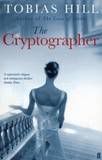 Dark Scribe: You have quite an accomplished background in poetry and short fiction, including four poetry collections – Year of the Dog (1995), Midnight in the City of Clocks (1996), Zoo (1998) and Nocturne in Chrome & Sunset Yellow (2006) – and an acclaimed short story collection, Skin (1997), which won both the 1997 Macmillan/PEN and Ian St. James Awards. How much does that early work in poetry, in particular, inform your prose?
Dark Scribe: You have quite an accomplished background in poetry and short fiction, including four poetry collections – Year of the Dog (1995), Midnight in the City of Clocks (1996), Zoo (1998) and Nocturne in Chrome & Sunset Yellow (2006) – and an acclaimed short story collection, Skin (1997), which won both the 1997 Macmillan/PEN and Ian St. James Awards. How much does that early work in poetry, in particular, inform your prose?
Tobias Hill: Most of my life I’ve felt more at home with poetry, but that’s changing. It might have something to do with getting older. I feel as if I’m only just beginning to understand what the novel is capable of. I also think, myself, that many poets produce their best work when they’re young (not all, but most), whereas the very best novels are often written when authors are older (not always, but often). The lyric impulse is youthful, but the novel benefits from patience and knowledge. There’s also a gender issue here: many female novelists only have a chance to hit their stride after they have had children. Although that may be changing. Very slightly.
In a day to day way, poetry and the novel are also different for me. When I write poetry I walk — walk all day, given the chance. I listen to people, watch people, talk to people, and it all goes in, as does the rhythm of walking. The novels are...less wholesome. I sit at home, in raggedy house clothes, and write for as long as I can bear to do so. I write novels sluttishly, scuzzily, grumpily, grouchily, and with brain-grinding slowness. A page put to bed is a good day's work for me; half a page is reason to be cheerful. Sometimes it’s not like that — there are days when I surf along for ten hours, and that’s a joy. But it can’t all be surfing, or there’d be nothing but surface. The hard days are the ones that matter.
Dark Scribe: How difficult was it moving from verse to prose? Were you focused on paring down the language and/or did you find a way to integrate both forms of writing?
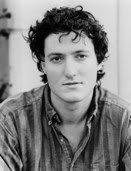 Tobias Hill: That sounds like I’ve packed my bags and quit Motel Poetry for Novel City. I’d never do that. I think poetry is the cutting edge of writing: it’s where the great advances are made, and it’s where time and place are most precisely reflected.
Tobias Hill: That sounds like I’ve packed my bags and quit Motel Poetry for Novel City. I’d never do that. I think poetry is the cutting edge of writing: it’s where the great advances are made, and it’s where time and place are most precisely reflected.
I don’t pare down my writing when I’m writing fiction. What’s to pare? I don’t write poetry that’s hyper-rich or difficult: I don’t think poetry should be those things. So in those terms the distinction isn’t a big one for me. There’s good writing and bad; writing that’s worth reading and writing that isn’t. The form or genre is beside the point.
Dark Scribe: I read somewhere that you once edited Edgar Allen Poe?
Tobias Hill: He’s an interesting writer, wild and innovative. It’s lucky he’s graduated to the Classics shelf mark, otherwise he’d be all over the shop and nobody would ever find him, would they? A writer like Poe needs a shelf mark all to himself. At the moment I’m editing Mishima, who is Poe’s opposite - subtle, smooth, consistent — but equally powerful.
Dark Scribe: You also spent some time working in journalism, with a three year gig as rock critic for London’s Sunday Telegraph. Care to name drop a bit? Share a juicy anecdote about the debauchery of the rock and roll set?
Tobias Hill: It’s all a blur of debauchment. I still have the hangover. There were famous people involved, so maybe it’s worth something.
Dark Scribe: Will you be traveling to the United States to promote The Hidden? If so, which cities are you most looking forward to visiting?
Tobias Hill: Sparta, Tennessee. Time to check out the bluegrass.
Dark Scribe: What can you tell DSM readers about the next Tobias Hill novel? Anything in the works?
Tobias Hill: London. Three families, three decades. There’s a line of Emerson’s at the beginning: “Cities give us collisions.” I’m writing about those collisions.
Dark Scribe: Last question. Are all secrets meant to be uncovered? Or are some things better left buried beneath modern society?
Tobias Hill: The power of hiding ourselves from one another is mercifully given, for men are beasts, and would devour one another but for this protection.
Look for Tobias Hill's official author website, coming soon!
Purchase The Hidden by Tobias Hill.



